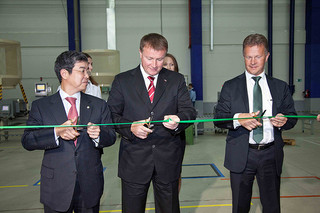August PMI: Russia Pulls Ahead While U.K. Growth Slows

The August Purchasing Manager’s Index (PMI) shows Russia at 51.0. It’s a positive trend that signals order growth for the third straight month.“Expanding activity in the manufacturing sector suggests economic growth may receive a boost despite a number of negative factors. Russia’s economy is on track to post its weakest growth since President Vladimir Putin came to power in 2000, except for the economic-crisis-hit year of 2009. Western sanctions against Russia over the crisis in Ukraine and Moscow’s retaliation in the form of a ban on food imports are also set to take their toll,” according to the Wall Street Journal.
Officials expect the boost comes for the favorable market for small, local Russian producers who no longer need to compete with bigger brands in the European Union (EU). The helping hand will come from fewer imports, which promise consumer inflation paired with higher product demand — a win-win, according to Russia’s government bank.
Reuters notes, “[…] the rise in consumer-related manufacturing sectors was the result of import substitution, but that the long-term effects would be negative for the economy, leading to higher costs and prices.”
With no other choice, consumers will help directly expand the Russian economy despite the inflation; likewise, manufacturers will continue to produce, which means the EU and U.S. sanctions aren’t having the negative impact officials previously expected. In fact, it’s instead hurting the U.K.
Meanwhile, Bloomberg News notes: “U.K. factory growth slowed more than forecast last month and Italian manufacturing shrank as Europe suffered the fallout from weakening demand and mounting geopolitical risks.”
Many of the latest Eurozone PMI readings dropped this month with Italy’s being the lowest (at 49.8). Readings above 50 indicate growth. This summer low — the lowest since June — indicates more than just a slump in production. Analysts are certain the decline is related to geopolitical strife and international insecurity throughout the market.








